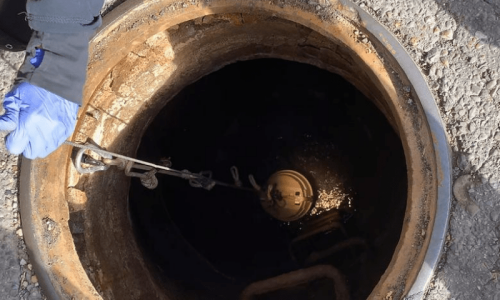
THE situation in East Pakistan (now Bangladesh) had set off alarm bells for the entire region. Karachi, being the demographically largest city and the economic hub of Pakistan, was on the enemy forces’ hit list. On the night of Dec 8-Dec 9, 1971 the Indian Air Force (IAF) bombed several areas of Karachi. The dastardly attack by Indian bombers killed 20 people and injured 109 — an intentional act of brutality.
Eyewitnesses in Defence Society, Reti Lines, Sultanabad, Bihar Colony and other affected neighbourhoods told the media that the invading planes threw flares to light up the entire areas and then selected their targets. The scenes of devastation in all the civilian pieces of land where nearly a dozen heavy bombs were dropped were gruesome. Houses were razed to the ground and people including children were killed. In Defence Society, six bungalows were completely destroyed. Others within a distance of some furlongs suffered extensive damage while windows and doors of the houses even far beyond, too, did not escape damage.
In Habib School, one bomb dropped very close to the swimming pool, science laboratory and a three-storey block of classrooms, and another just next to it, killing all those who were there. In Reti Lines, two bombs caused similar devastation, destroying a large number of houses and hutments.
Immediately after the attack, people rushed to lend all kinds of support to those who were affected by it. And they weren’t just fellow countrymen: on Dec 9, 25 Arab students donated blood at Civil Hospital for war victims of Bihar Colony and other parts of the city. Then the first batch of 15 Pakistan International Airlines’ (PIA) employees donated blood at the Jinnah Post-Graduate Medical Centre (JPMC). Apart from that, the students of the Dow Medical College (DMC) set up a free canteen service for the injured (and their relatives) admitted to Civil Hospital.
Alongside it, the process of rendering services as volunteers and razakars was going on. The same day, it was reported that over 300 women had already registered themselves as All Pakistan Women’s Association (APWA) razakars and subcommittees of the association had been formed for emergency relief work.
Men of letters did their bit as well. On Dec 10, a meeting of writers and intellectuals of Karachi under the auspices of the Pakistan Writes Guild (PWG) appealed to all peace loving nations to help Pakistan and its people to fight the expansionist designs and naked aggression of India. In a resolution adopted at the meeting, the writers asked their counterparts in India and Russia not to support fascist activities of their rulers; and that they should not stand for the criminal deeds of the war lords of their countries only because they belonged to India and Russia.
On the subject of writers, eminent poet Faiz Ahmed Faiz was in the news that week due to the environment that had engulfed the country. He was being asked to relinquish the Lenin Peace Prize that he had received in 1962. On Dec 11, Faiz categorically said that he would not renounce the Lenin Peace Prize. In a press statement he emphasised, “This award has nothing to do either with the present Soviet leadership or ever with the Soviet government,” adding, “nothing will persuade me to insult the name of Lenin, the great champion of the oppressed and downtrodden all over the world… I have in no way renounced the ideals of that this award stands for.”
Published in Dawn, December 6th, 2021













































Dear visitor, the comments section is undergoing an overhaul and will return soon.